I stepped out of the vehicle and into the looming shadow of the Centro de Convenciones de Lima for APEC Peru 2024. The concrete walls towered over me, making me feel small, like I was two inches tall. Standing at the entrance of this massive structure, I took a deep breath and quietly reminded myself of why I was here. This wasn’t just a moment for me. I couldn’t help but feel emotional, reflecting on my journey: a quiet girl from the reserve, raised to believe in the power of community, now standing as an influential voice on the global stage. "Community values, shared abundance, reciprocity... these are the principles that brought you here," I reminded myself.
Soon, I would take the stage alongside visionary leaders whose work had left profound impacts on their respective communities. Moderated by Jane Korinek, the panel included Joanne Tapia, Winifred Kula, Fidelia Abigail Gongora, and Glenn Johnston. Together, we addressed the inequalities Indigenous peoples face in trade and how we can build foundations to expand export opportunities for our communities. The panel bridged cultures and continents, from Papua New Guinea and Australia to Canada, Mexico, and South America, drawing out the shared and distinct challenges we face in Indigenous trade.
When I received the invitation to speak, after the initial shock and anxiety wore off, I felt a mix of pride and responsibility. This wasn’t just recognition of my work; it was recognition for my community. And this invitation was not just a token gesture. It was an opportunity to bring a perspective that is far too often absent from global conversations about economics, sustainability, and innovation. Indigenous voices, leaders, and communities are frequently overlooked, even though our contributions to the global economy are significant and growing.
Indigenous peoples have always been the keepers of stories and traditions, with wisdom in resilience, resourcefulness, and community-driven economic models. Our perspectives are not only relevant but essential to solving the complex challenges the world faces today; from climate change to economic equity. At APEC Peru 2024, as a guest of the World Economic Forum, I embraced my role as an advocate, amplifying the need to integrate Indigenous ways of knowing into global strategies. True progress, after all, isn't just about who's in the room, it’s about who holds influence at the table.
On the panel, my contribution went beyond highlighting the success of Indigenous Box. I argued that Indigenous Box has demonstrated how a privately held Indigenous corporation can build a model that actively promotes economic development while driving real, sustainable, value into the global market. My goal with Indigenous Box was to breathe life into ideas that had once only been dreams, and I was here in Peru to share that dream: a vision of a world where initiatives like ours can empower Indigenous entrepreneurs, communities, and businesses worldwide.
As I stood there, I reflected on our journey at Indigenous Box. From the start, our vision centered around reclaiming sovereignty and fostering cultural exchange through trade between Indigenous nations, and the greater global supply chain. But this isn’t just about selling products. It’s about creating pathways to sustainable growth built on a foundation of Indigenous values: reciprocity, fairness, and respect. Through these values, we are showing the world that Indigenous businesses can drive economic growth while creating lasting, intergenerational impact.
Our beginning: Small actions, big vision.
Three years ago, I envisioned creating a space to nurture the growth of Indigenous businesses. We began with a mission and a tobacco offering, hoping that even a small action could spark a greater impact. Our goal was to reestablish the original supply chains, seed intergenerational knowledge, and build opportunities for generations to come.
Our end-to-end supply chain doesn’t begin at the receiving dock and end at our shipping dock. We learned early on that our requirements for success were far greater. Through Indigenous Box, we have identified the need to integrate Indigenous Peoples at multiple levels of the supply chain, from sourcing, manufacturing and production to distribution and quality control; not just as end users. We believe True economic reconciliation can only be achieved through meaningful inclusion in these critical economic levers.
Throughout our journey, I have learned, first hand and from our suppliers, the challenges Indigenous entrepreneurs face: jurisdictional complexities when it comes to things like taxation and compliance and government allocated business supports, the lack of intergenerational business knowledge — a loss not of our making — and the tension between Indigenous cultural values and intellectual property protections. I learned that government programs, while well-intended, often lack the ability to empower Indigenous businesses at a grassroots level.
Yet despite these hurdles, we found a way to thrive. We built a community of suppliers and customers who shared our vision of a better future. They are the true heroes of the Indigenous Box story. They aren't just participants in our success—they are the ones making our contribution to economic reconciliation possible.
Small in people, big in impact.
It is time for Indigenous businesses to be seen not just as participants in the global economy but as leaders of innovation, sustainability, and inclusivity. Though we may be small in number, the impact we make is profound. Indigenous businesses are proof that true success isn’t measured solely by size or resources, but by the values that drive us and the intergenerational impact we leave behind. Our contributions come from a place of deep respect for the land, our communities, and our ancestors. These values are what allow us to innovate in ways that prioritize long-term sustainability over short-term gain. The world needs this kind of leadership more than ever, especially as global challenges become more complex. I was honored to be at that table because the future depends on the collective contributions of all people, especially those historically marginalized. Our stories, businesses, and solutions are needed now more than ever. Indigenous entrepreneurs are rewriting the rules, creating businesses rooted in both purpose and profit. This is how we truly make our mark: small in people, but undeniably big in impact.
Small in resources, big in thinking.
In Peru, I spoke about my dream for the creation of Indigenous Free Trade Zones (IFTZ): an ambitious but necessary step toward building a more inclusive and equitable global economy. It’s a vision that recognizes the untapped potential of Indigenous businesses and the critical importance of preserving Indigenous ways of knowing and being. Establishing IFTZs would create spaces where Indigenous entrepreneurs can thrive, where cultures are celebrated, and where sustainable growth becomes the foundation for success. Though we may be working with fewer resources, our thinking has always been expansive. Indigenous business models are not just about economic gain, but about creating systems that nurture the well-being of people and Mother Earth. IFTZs would provide a platform to elevate these business models on a global scale, offering Indigenous entrepreneurs access to international markets while safeguarding our cultural teachings and knowledge systems.
Now is the time for governments, international organizations, and Indigenous leaders to unite and turn this vision into reality. The benefits of Indigenous Free Trade Zones will extend beyond borders, contributing to a more just and prosperous world for everyone. By thinking big and working together, we can create opportunities that ensure future generations inherit not only wealth but also wisdom.
As I left the stage and walked back through the towering halls of the Centro de Convenciones, the weight of my community's hopes, dreams, and struggles no longer felt as heavy. Instead, it felt like wings. This journey, from the corner of my reserve to the global stage, has shown me that our power as Indigenous peoples lies in our ability to think expansively while remaining connected to who we are. We are small in numbers, yes, but our impact reverberates far beyond borders. In Peru, I spoke for my nation, for the entrepreneurs building businesses with heart, and for future generations who will inherit the trails we are making today.
Standing taller than ever, I knew that this moment was not the culmination of my journey, but the next step in a much larger movement, one that has the potential to change the world. Stoodis.


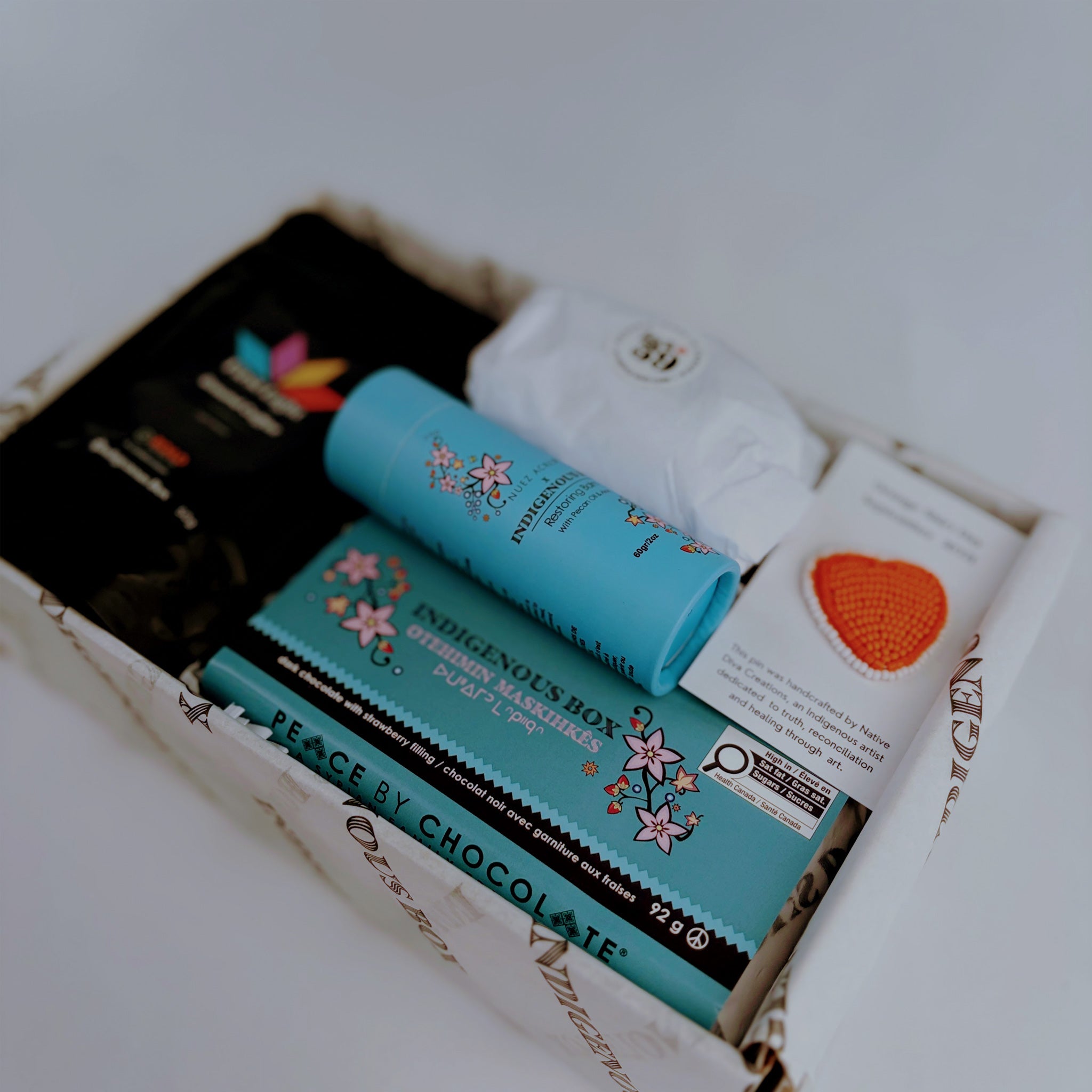
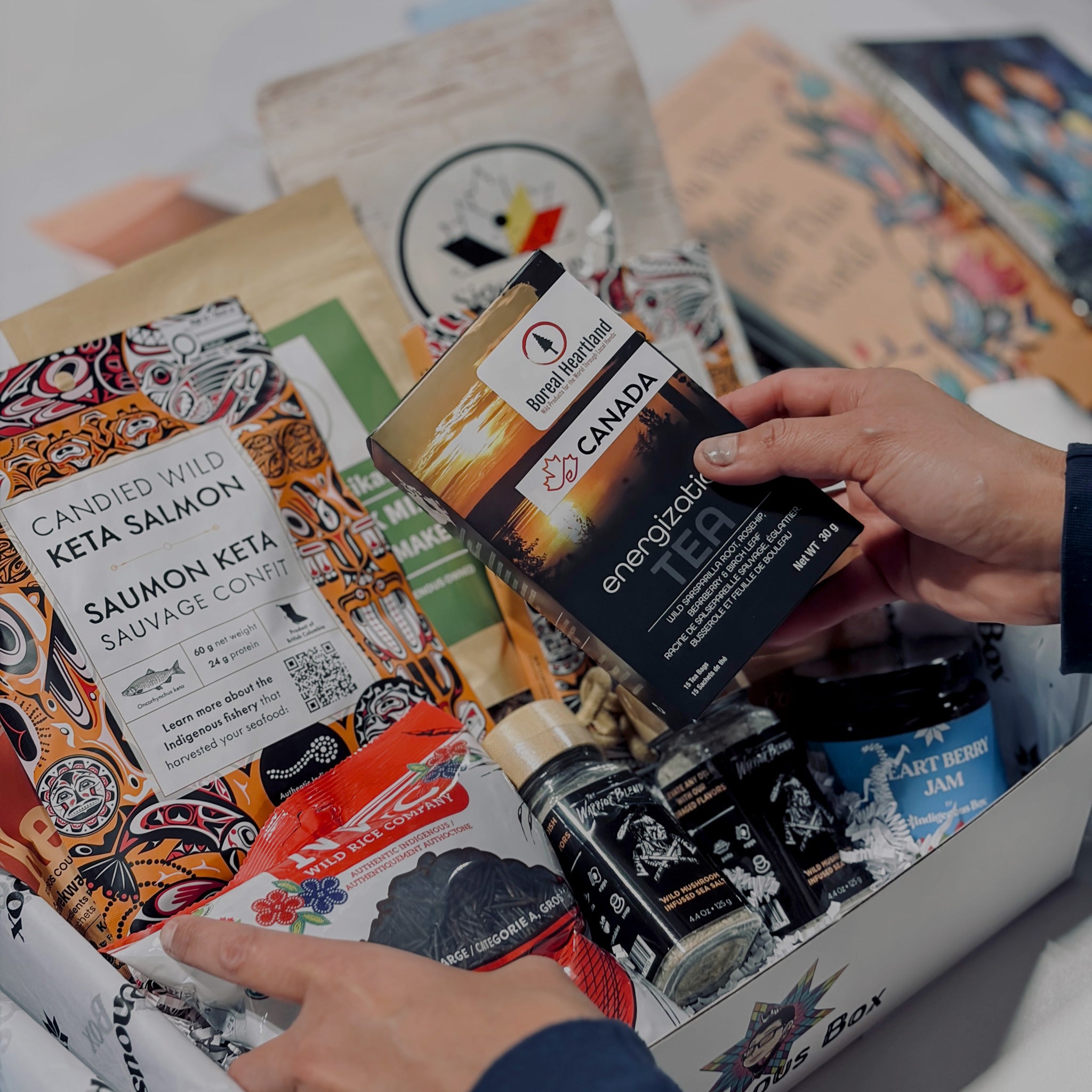
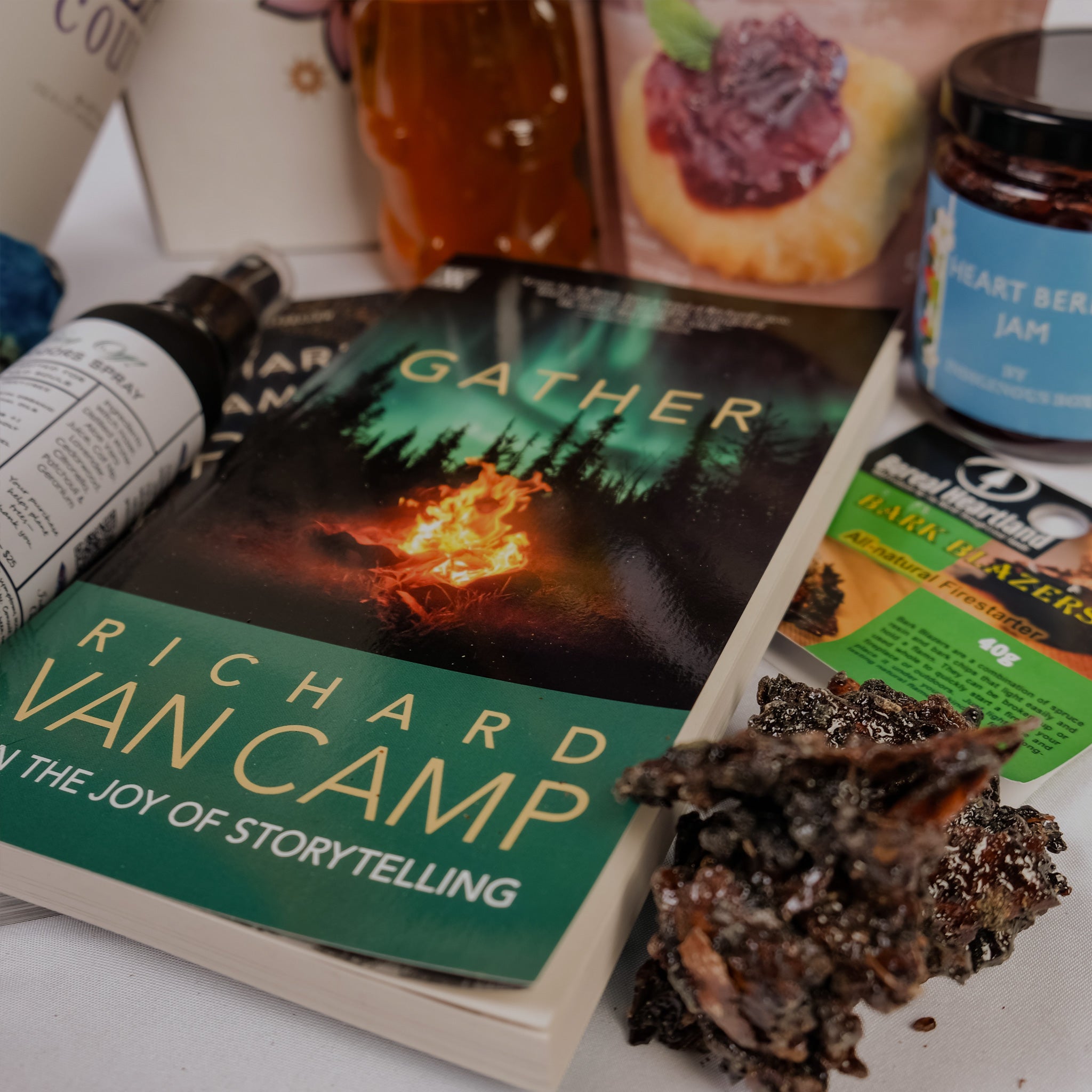
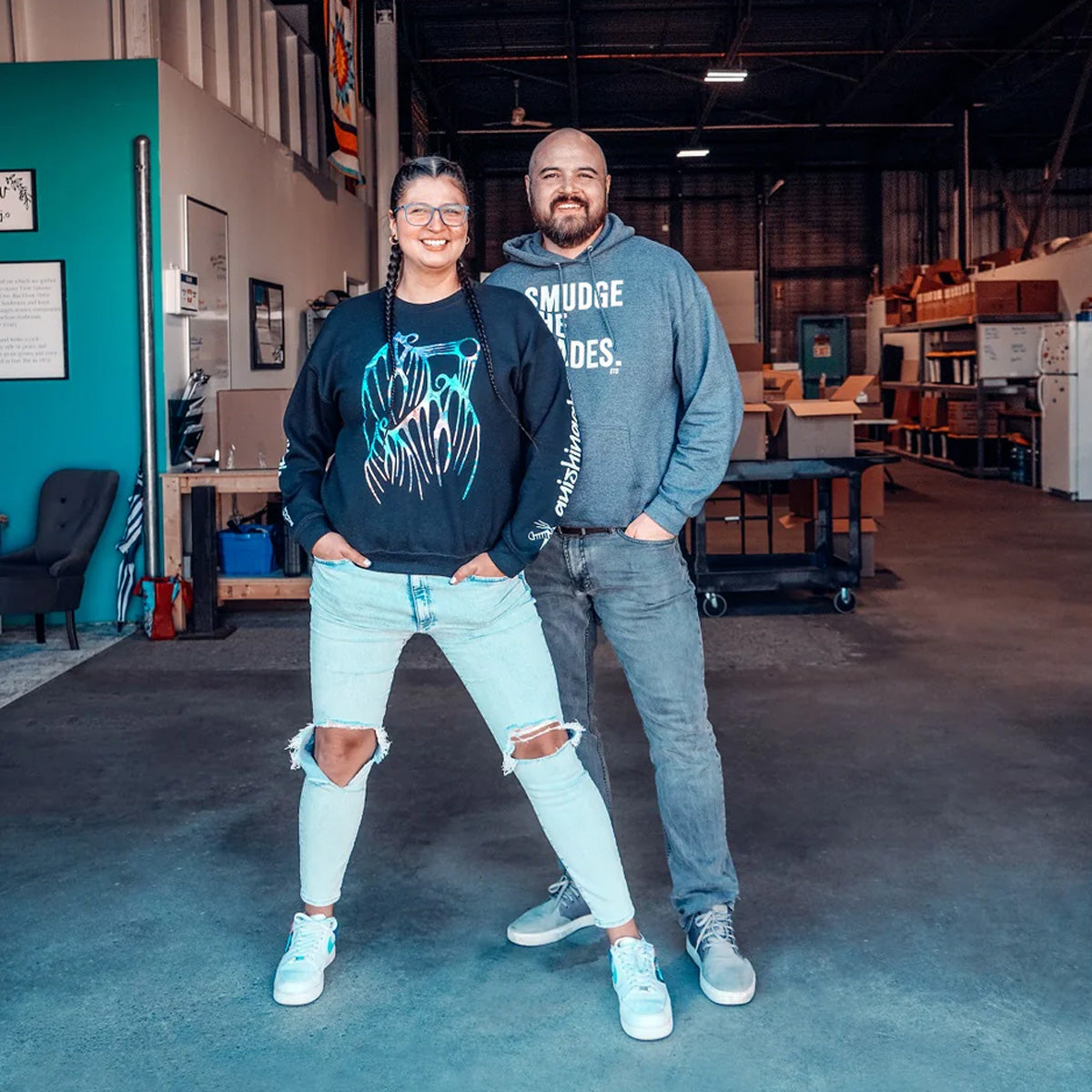
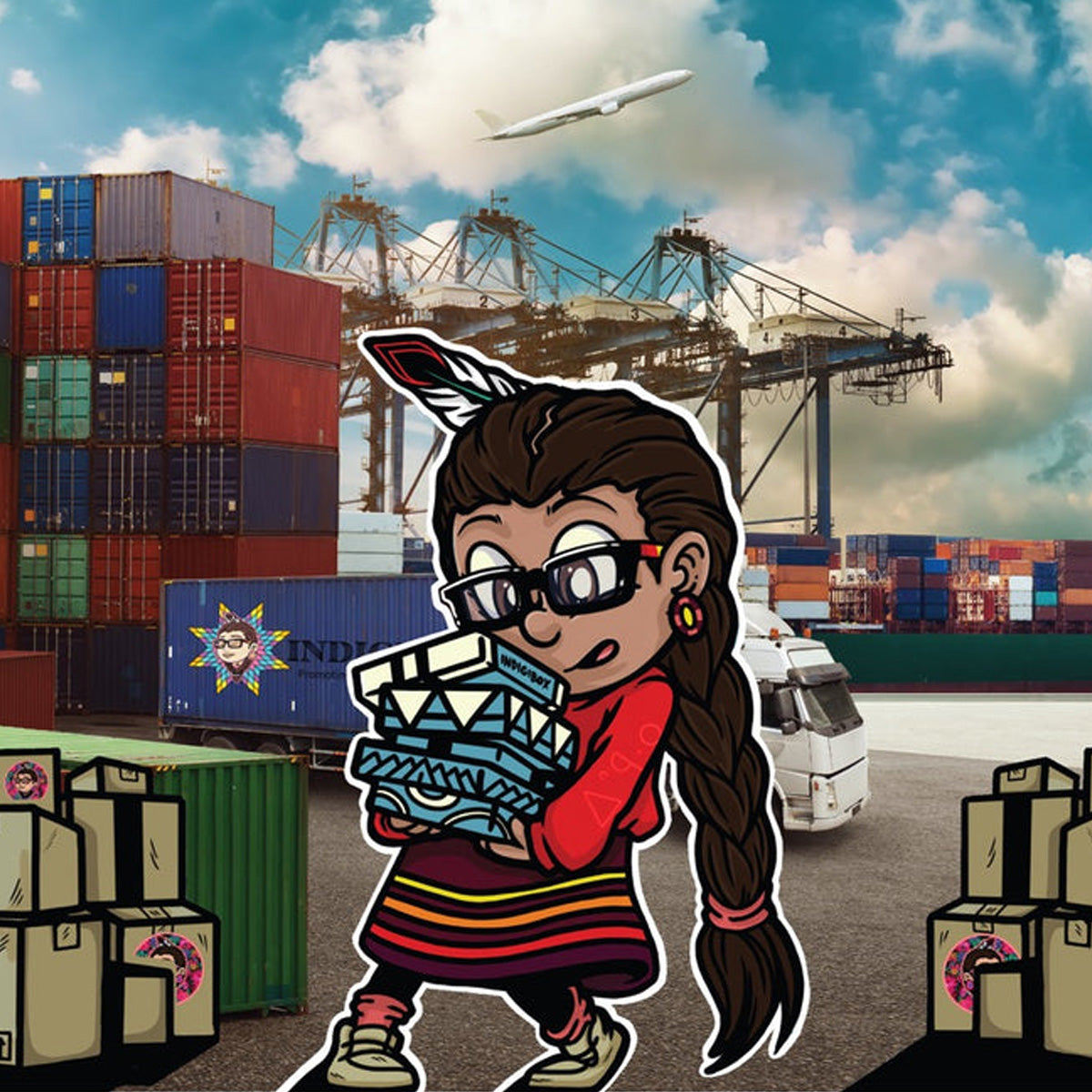
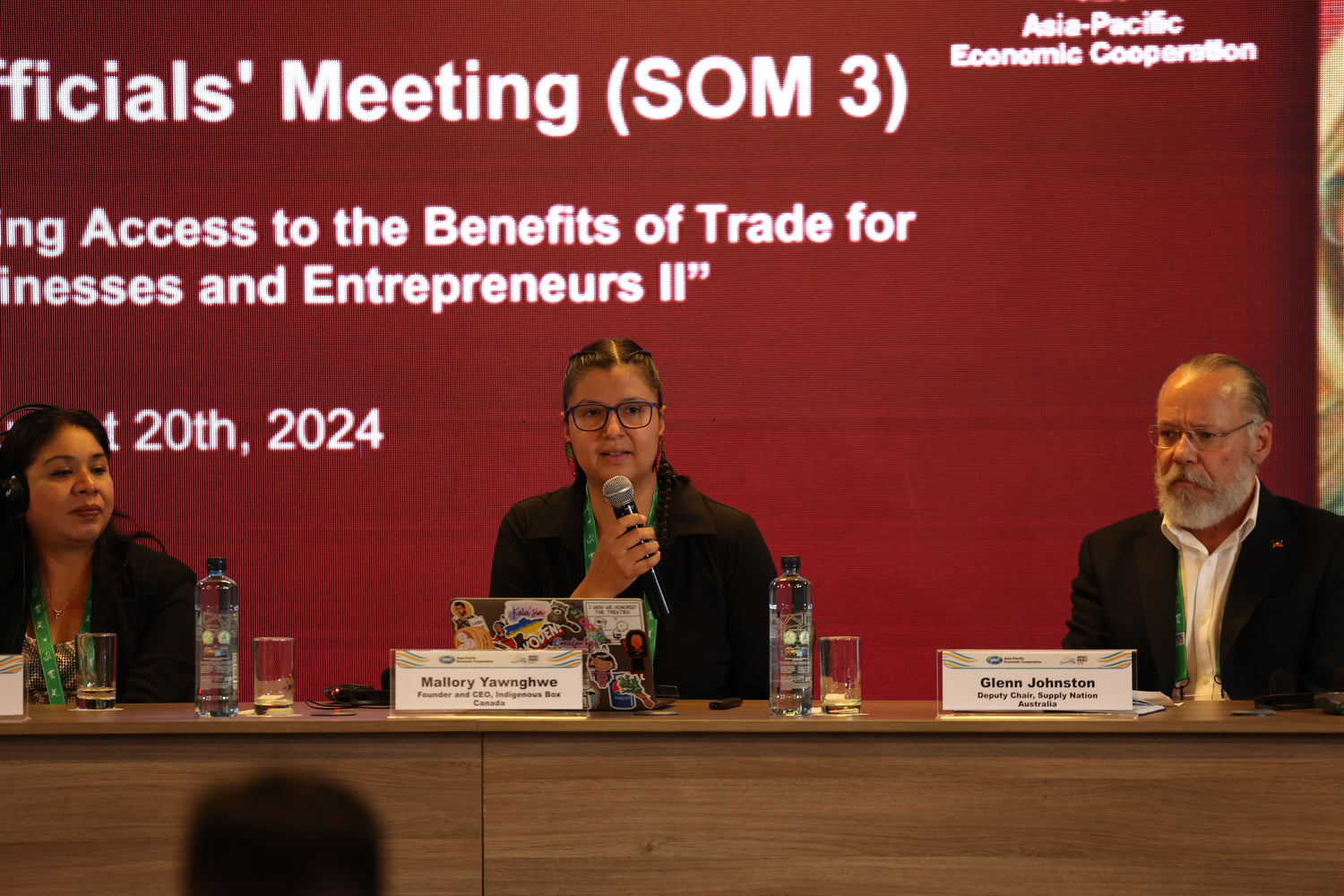
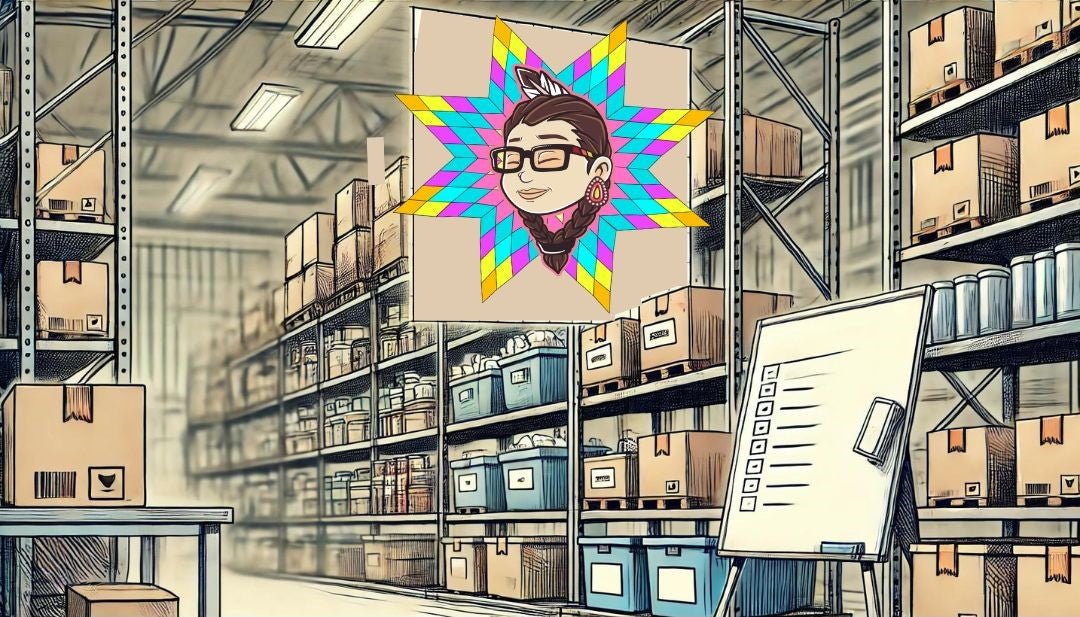
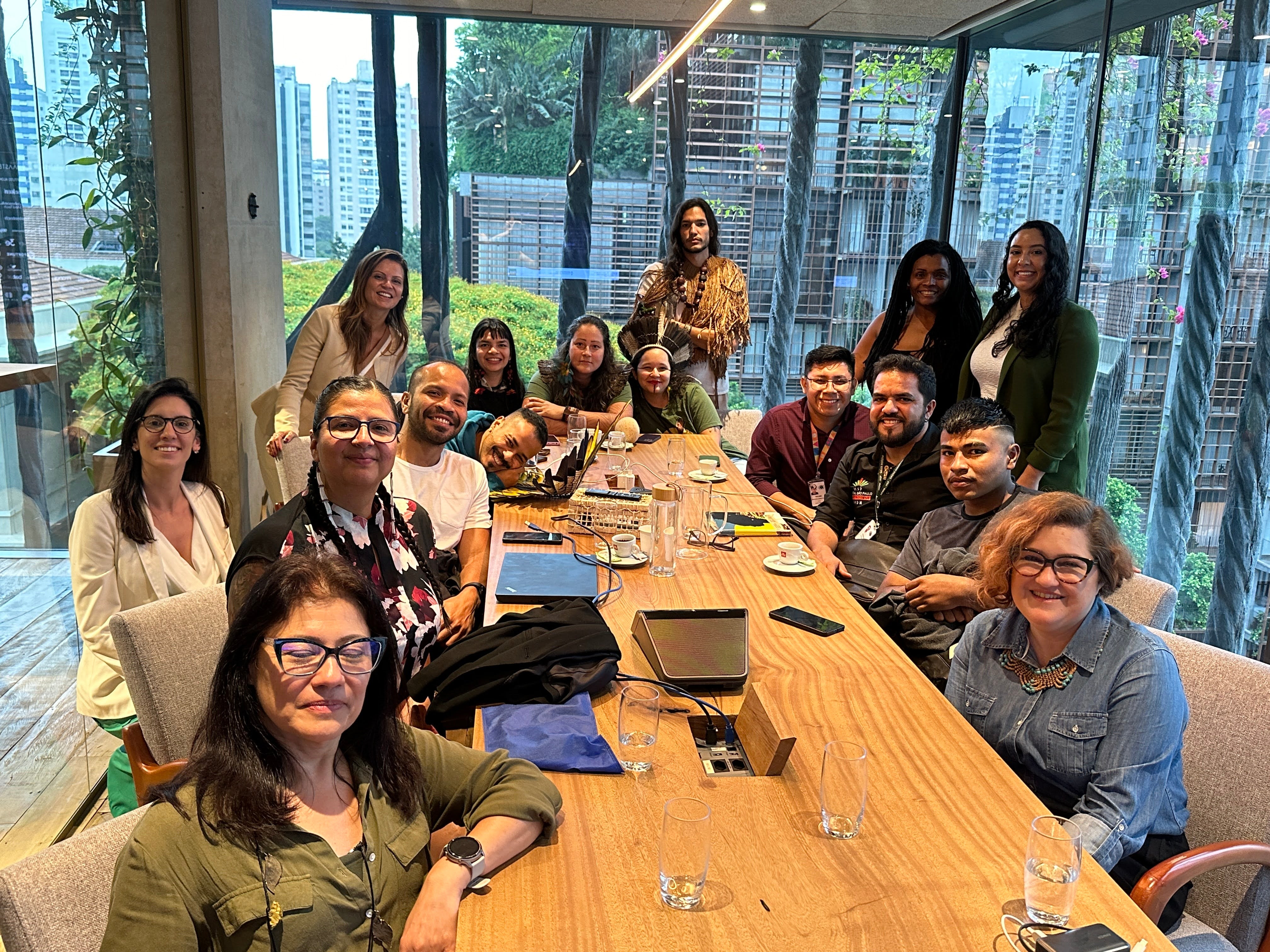

3 comments
Joseph
Hello Mallory,
“This is how we truly make our mark: Small in resources, big in thinking… Small in people, big in impact” … Powerful words, and an Incredible article. Rooting for you and Indigenous Box. So much knowledge to learn from the Indigenous people and thank you for amplifying your success story.
Brenda
What a wonderful and informative article
Loved reading this
Thank you
Brenda
Vicki Ford
Hello Mallory.
This is so exciting to be sharing such a vision on an international stage. I am a long time customer of Indigenous Box and love them all. I am non-indigenous but my two smallest grandsons are and it gives me hope for my two little ones that there will be more opportunities for them as they grow up in a more supportive environment to share their own gifts. Through your work and the work of other Indigenous leaders all over the world you are part of that hope. I believe this is the beginning of a beautiful wave of positive motion.
I feel it is far past the time where we must begin learning from Indigenous example in sustainability of the people & our Mother Earth. And what a beautiful vision of Free Trade Zones connecting and building international relationships as Indigenous entrepreneurs around the world come together blazing new trails. Bless you in your work. I am so grateful for the trails you and other leaders are creating.
Leave a comment
This site is protected by hCaptcha and the hCaptcha Privacy Policy and Terms of Service apply.